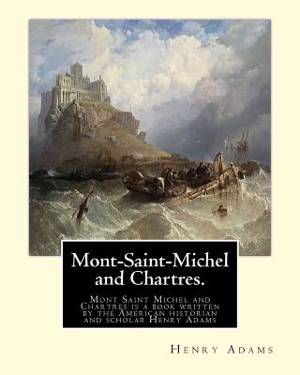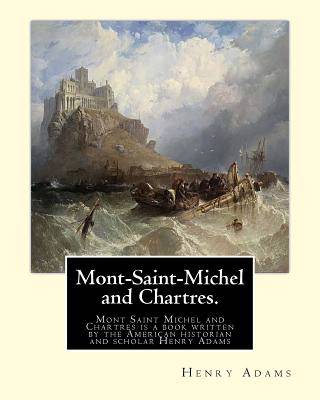
- Retrait gratuit dans votre magasin Club
- 7.000.000 titres dans notre catalogue
- Payer en toute sécurité
- Toujours un magasin près de chez vous
- Retrait gratuit dans votre magasin Club
- 7.000.0000 titres dans notre catalogue
- Payer en toute sécurité
- Toujours un magasin près de chez vous
Mont-Saint-Michel and Chartres. By
Henry Adams: Mont Saint Michel and Chartres is a book written by the American historian and scholar Henry Adams (1838-1918).
Henry Adams
Livre broché | Anglais
19,45 €
+ 38 points
Description
Mont Saint Michel and Chartres is a book written by the American historian and scholar Henry Adams (1838-1918). Adams wrote this book, a meditative reflection on medieval culture, well after his historical masterpiece, The History of the United States of America (1801-1817). Whereas the latter is a serious academic work of history, Mont Saint Michel and Chartres is far more whimsical, a playful meditative reflection on medieval culture. It was published privately in 1904, originally intended simply for his nieces; in 1913, it was made more widely available when published with the support of the American Institute of Architects.[1] Despite having a far less serious intent than his earlier historical writings, Mont Saint Michel and Chartres has garnered high praise: for example, Maurice le Briton said, "Mont-Saint-Michel and Chartres is undoubtedly Adams's greatest work; though not apparently related to his earlier writings, this inspired work of poetry is the crowning achievement of his severe and somber historical oeuvre."[2] A few years after Adams published Mont Saint Michel and Chartres, he published his most famous work, the Education of Henry Adams in 1907. Raymond Carney has said of this pair of works: "Taken together they may be read as Adams' spiritual autobiography-two monumental volumes in which he attempts to bring together in a vast synthesis all of his knowledge of politics, economics, psychology, science, philosophy, art, and literature in order to attempt to understand the individual's place in history and society."....... Henry Brooks Adams (February 16, 1838 - March 27, 1918) was an American historian and member of the Adams political family, being descended from two U.S. Presidents. As a young Harvard graduate, he was secretary to his father, Charles Francis Adams, Abraham Lincoln's ambassador in London, a posting that had much influence on the younger man, both through experience of wartime diplomacy and absorption in English culture, especially the works of John Stuart Mill. After the American Civil War, he became a noted political journalist who entertained America's foremost intellectuals at his homes in Washington and Boston. In his lifetime, he was best known for his History of the United States During the Administrations of Thomas Jefferson and James Madison, a 9-volume work, praised for its literary style. His posthumously published memoirs, The Education of Henry Adams, won the Pulitzer Prize and went on to be named by the Modern Library as the top English-language nonfiction book of the 20th century...........
Spécifications
Parties prenantes
- Auteur(s) :
- Editeur:
Contenu
- Nombre de pages :
- 224
- Langue:
- Anglais
Caractéristiques
- EAN:
- 9781546647485
- Date de parution :
- 12-05-17
- Format:
- Livre broché
- Format numérique:
- Trade paperback (VS)
- Dimensions :
- 203 mm x 254 mm
- Poids :
- 453 g

Les avis
Nous publions uniquement les avis qui respectent les conditions requises. Consultez nos conditions pour les avis.






